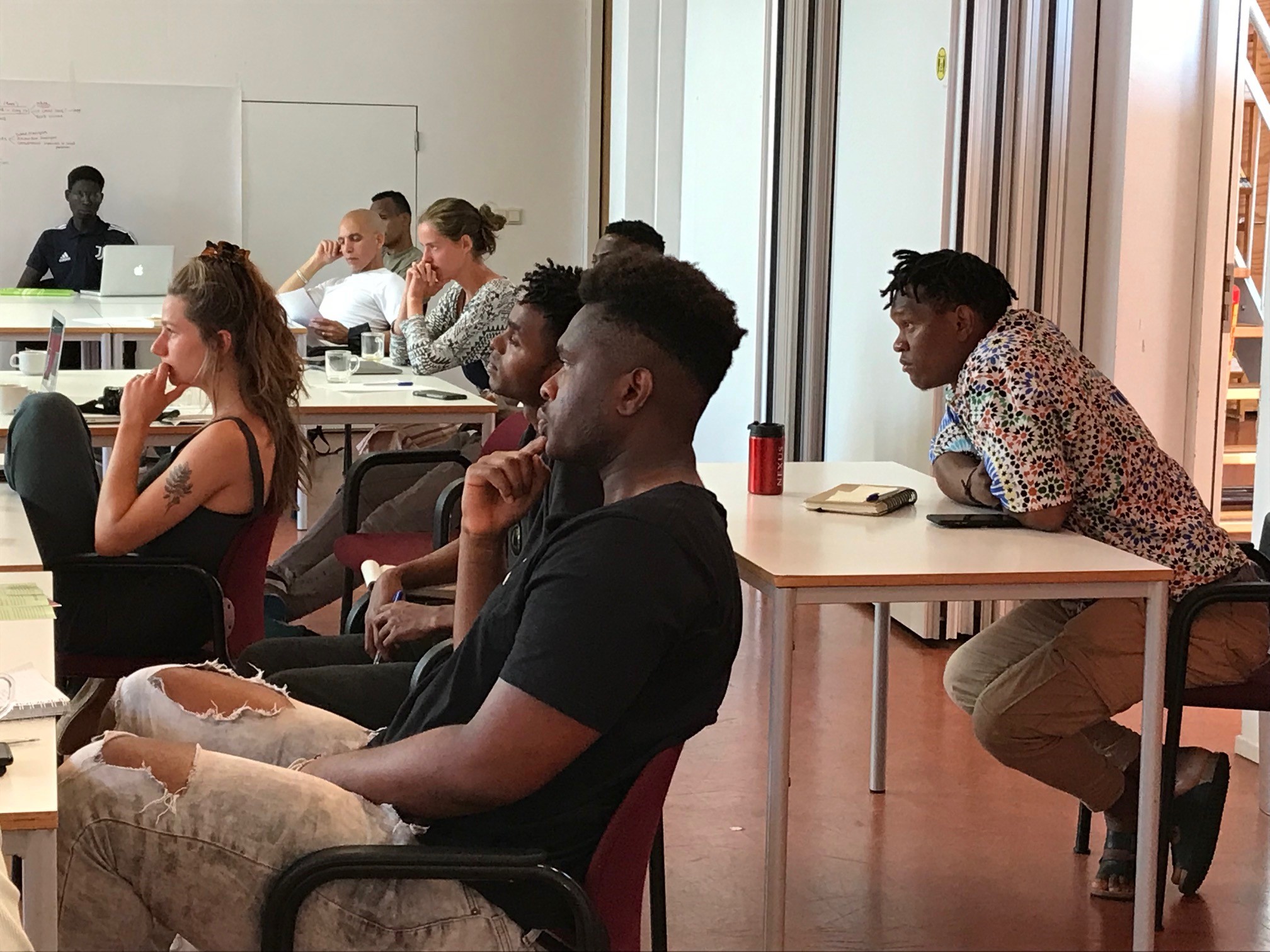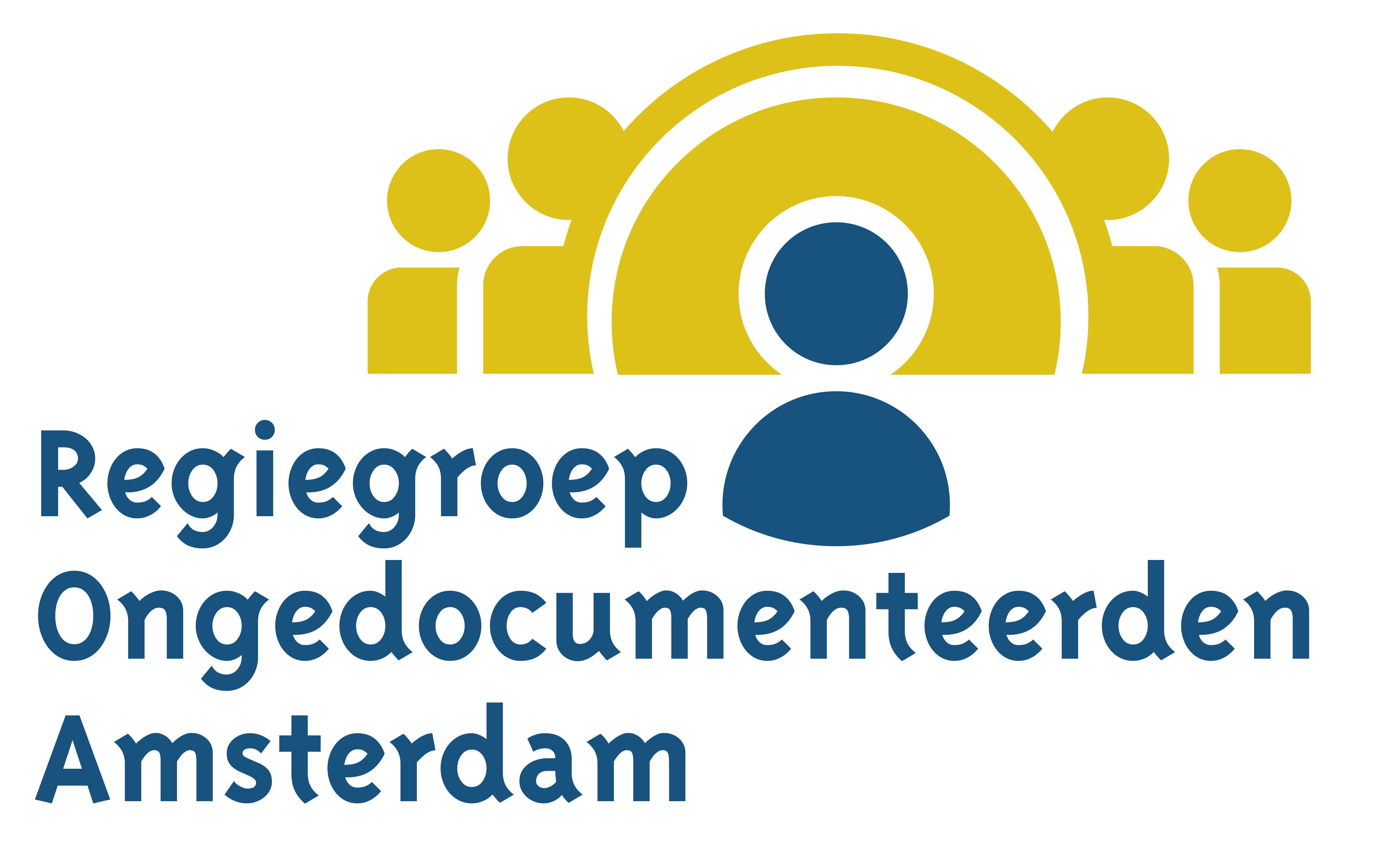
30 aug ETHNIC PROFILING: UNDOCUMENTED IN THE CORSSHAIRS
“The fact that you’re undocumented, does not mean you don’t have human rights,” the room is filled with nodding agreement, “but it is up to you to make sure your rights are being respected, Mpanzu Bamenga continues. “Change starts when you know your rights.”
Mpanzu is an expert in migration law and coordinator of the ‘Regiegroep Ongedocumenteerden Amsterdam’. He is speaking at the Summer Academy 2021 of Here To Support, a foundation which organizes projects for and with undocumented people. Today’s topic: Ethnic profiling.
Many people in the crowd, predominantly young African men, have first-hand experience with this topic. Mpanzu, with his Congolese roots, does as well. As ethnic profiling is gaining attention in the public debate, awareness is increasing.
Ethnicity as a risk factor
All of us have certain characteristics that set us apart, but that we did not necessarily choose for. Like being tall or short, male or female, black or white, etc. Being different, or looking different, should not impact the way we are treated. We are all equal in the eyes of the law.
Nevertheless government institutions – such as the police and tax authorities – use these types of characteristics to build risk profiles: people with characteristic x are more often suspected of y, where y stands for a suspicious or criminal activity. When x concerns descendance, nationality or skin-color, it becomes ethnic profiling.
It is important to stress that this profile says nothing about the person it is being projected upon! But it does have consequences for them. Which is problematic and illegal.
In conflict with equal treatment
These profiles institutionalize prejudice and normalize acting accordingly. This is in conflict with the right to equal treatment. In the recent Dutch catastrophe known as ‘de toeslagenaffaire’ (tax subsidy affair) ethnic profiling played an essential part. This shows how deeply integrated ethnic profiling already is and how disastrous the consequences can be.
Mpanzu describes the ‘everyday example’ of regularly being picked out at border control. He is considered suspicious, just because of his skin color. “This makes you feel as if you don’t really belong, even though I’m Dutch,” Mpanzu says while holding up his passport.
“Dutch by document,” an attendee responds. Referring to his own longing for the redeeming document. For undocumented migrants a simple random control can have disastrous consequences. “When the police stops you on the street, and you don’t have an ID, you can be placed in detention,” an attendee explains. “As an undocumented person, when I hear ‘police’ I think: hide.” Yet just by his appearance, he is more likely to catch the attention of the authorities.
What can be done?
“If you are being stopped, always ask why,” Mpanzu advises. “If a decision is just, it should be explainable.” Without a good reason, it is not justifiable. Thus asking for an explanation might limit the damage.
His own experiences motivated Mpanzu to fight the normalization of ethnic profiling. On personal title and in collaboration with a pilot, PILP (NJCM), Amnesty International, Control Alt Delete, Antidiscrimation office RADAR and lawoffice Houthoff Advocaten, Mpanzu started a lawsuit against the military police because of their use of ethnicity in risk profiles. The judgement will be held on the 22nd of September 2021.
In striving for an inclusive city, the foundation Here To Support has dedicates this year’s Summer Academy to the development of a ‘City Card’. An ID card for all of the city’s residents, which acknowledges you living in Amsterdam, with or without papers. Cities like New York, where 1.8 million people already have such a card, show this is possible.
For Amsterdam’s undocumented, this card would mean inclusion on both a symbolic and practical level: parts of the city they are now excluded from will become accessible. And the City Card as an ID might limit detention as a result of random police controls. Here To Support’s plan stems from the observation that people are here and live here, a City Card would acknowledge that fact.
How to stay up to date
Do you want to stay in the loop about the City Card? Follow Here To Support on Facebook. For updates about the lawsuit against the military police, sign up for the Newsletter of Control Alt Delete or follow Mpanzu Bamenga on Instagram or Twitter. Check de Regiegroep on Instragram or Facebook for our news and events.




Sorry, het is niet mogelijk om te reageren.